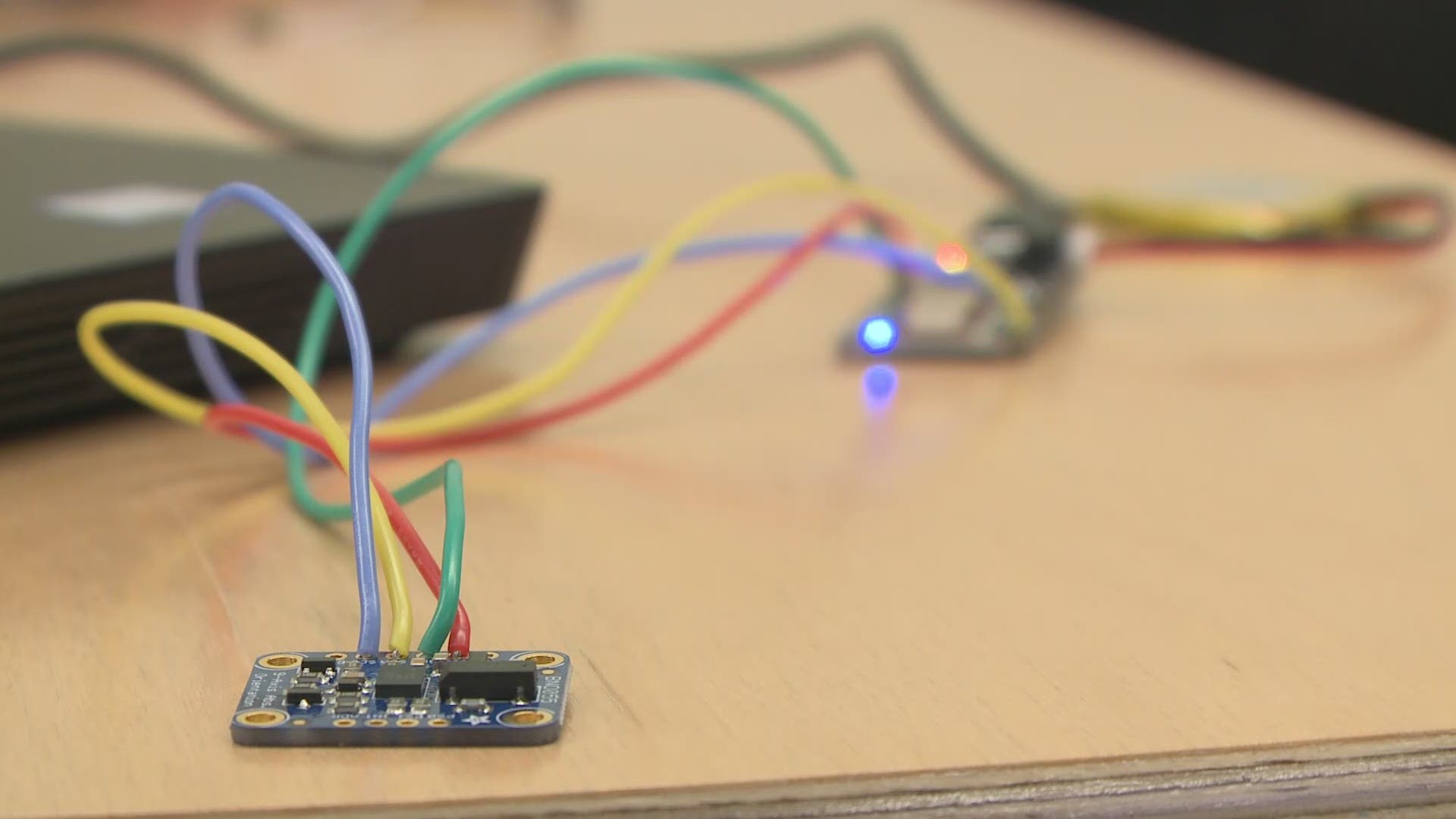BIDDEFORD, Maine — At any given college you’ll find students who want to change the world; they have talent and drive, but haven’t quite found a direction. Two years ago, the University of New England began a program it hoped would help channel some of that creativity into creations that could change the way we live.
"There’s a common therapy done for stroke victims, where part of their foot is pointed down. It’s a tripping hazard and it’s a big problem for the stroke patients. One of the therapies is lifting this foot up and encouraging your neurons to recover that position," explains David Correa, a nursing major at the University.
Correa is only in his freshman year, but when he’s not in class he’s thinking of ways he can help grow technology within the medical field. "Not only am I helping my patients that I’m working with but I’m helping entire groups of nurses help entire groups of patients."
He works on technology like creating a smart blanket for premature babies, especially those born in third world countries. "It’s calibrated to the baby's needs and it has sensors attached to it, so it can send updates on the baby’s vitals and it would create automated healthcare plans," says Hannah Welch, a co-creator. Welch is also a freshman; her major is Marine Biology which has nothing to do with babies or hospitals, but in the Makerspace lab on the campus of UNE she can be creative and make a change beyond her field of study.
"One of the things we really try to do is get students engaged and feel empowered to be able to think of some way they can actually show viably they as a team can put together an idea and actually take it somewhere, so they do little prototypes." Tony Santella helped launch Makerspace. Any student, regardless of major, is welcome to spend time in the lab, learn more about technology, and put ideas to work.
"We have Students who want to just do research support for faculty like the robo-seal you heard about, where they’re creating an RV-based rubber seal and tagging seals for better research," says Santella. He says others can just come in and make a key chain if they want to in this open lab. But why make key chains, when you can build robots, or design machines that can float in the water and detect harmful algae, or a helmet with sensors that can help doctors better understand the way a stroke has impacted a patient?
For some of the students, this is their after school activity; a place to gather with like-minded friends and experiment. For others, it’s personal.
"When I was a senior in high school my grandfather had a stroke and he was at home; he lived with me for about two years, and he only saw a nurse about once a week," says student inventor Shayne Cifrodelli. "Physical rehab is really expensive and insurance only covers it for about 100 days after the stroke, which is not optimal. Stroke patients usually are still recovering when they lose insurance."
Cifrodelli designed a helmet with sensors that detect brain movements in a patient who has suffered a stroke. The idea is to monitor what's firing and when, and pass that information along to a physician.
No matter the reason behind the invention, or their designated major, there is no right or wrong for students in this lab, no screw ups; only lessons learned and experience gained.

